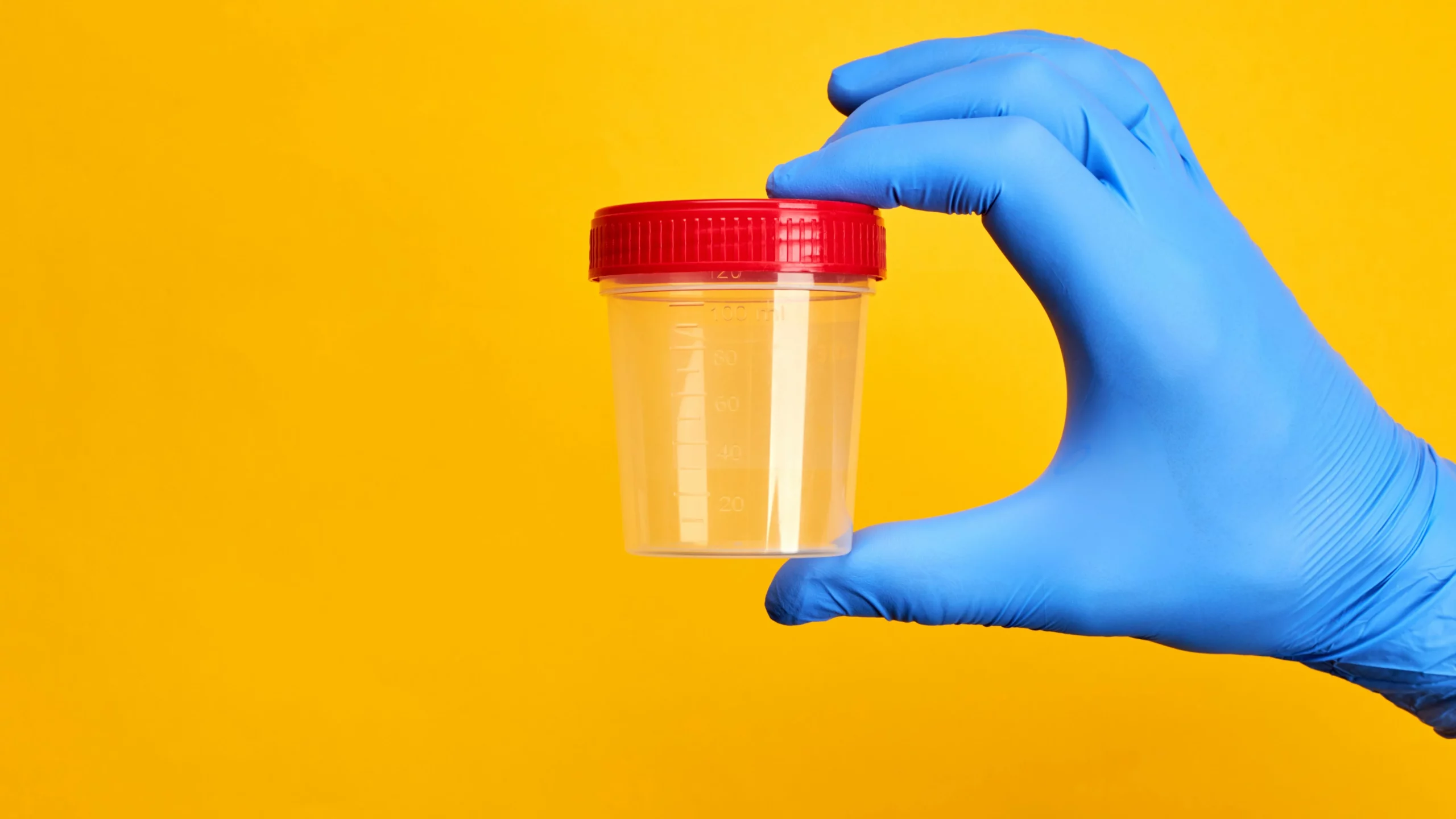
In today’s world, where drug testing has become a routine part of employment screening and legal obligations, passing a weed drug test holds significant importance for many individuals. Whether it’s securing a job, maintaining professional certifications, or adhering to legal requirements, the consequences of a failed drug test can be far-reaching. Therefore, understanding how to successfully navigate these tests is paramount.
In this comprehensive guide, we’ll delve into the intricacies of weed drug tests, exploring the various factors that influence their outcomes and providing actionable strategies to help you pass with confidence. From temporary masking techniques to long-term detoxification methods, we’ll cover it all. Additionally, we’ll discuss the role of CBD in drug testing, shed light on the effects of cannabis on the body, and equip you with the knowledge needed to make informed decisions regarding your health and well-being in relation to cannabis consumption and drug testing protocols.
So, whether you’re a job seeker, a professional, or simply someone navigating the complexities of drug testing, this article aims to empower you with the information necessary to navigate this process effectively and emerge successful.
Cannabis, deeply ingrained in human history for its various uses, contains a diverse array of chemical compounds, but none are as prominent as THC (tetrahydrocannabinol) and CBD (cannabidiol). THC is renowned as the psychoactive component responsible for the euphoric “high” associated with cannabis consumption, while CBD stands out for its non-psychoactive nature and potential therapeutic properties. This dichotomy between THC and CBD plays a pivotal role in understanding how drug tests function.
Drug tests are designed to detect the presence of THC or its metabolites within the body. THC, being the primary psychoactive compound, is the focus of these tests as it’s associated with impaired cognitive functions and motor skills. By analyzing bodily fluids or tissues, drug tests can identify the presence of THC metabolites, signalling recent cannabis use.
Various types of drug tests are employed, each with its unique methodology and detection capabilities. Urine tests, widely utilized for their non-invasive nature and cost-effectiveness, are the most common in employment screening scenarios. However, blood tests, saliva tests, and hair tests are also utilized, each offering distinct advantages and detection windows.
Urine tests are preferred in many situations due to their ease of administration and ability to detect THC metabolites over an extended period, albeit with certain limitations. Conversely, saliva tests are gaining traction for their ability to detect recent cannabis use more accurately. These tests provide valuable insights into an individual’s recent cannabis consumption habits, aiding employers, law enforcement agencies, and other entities in making informed decisions.
Understanding the intricacies of these drug tests is imperative for individuals seeking to navigate them successfully. By comprehending how these tests operate and what they aim to detect, individuals can develop effective strategies to mitigate the risk of a positive result. In the subsequent sections of this guide, we’ll delve deeper into these strategies, equipping readers with the knowledge and tools needed to pass weed drug tests with confidence.
Several factors play crucial roles in determining the outcome of a weed drug test, highlighting the complexity of the process. Firstly, the frequency and quantity of cannabis consumption significantly impact the presence of THC metabolites in the body. Regular and heavy users are more likely to have higher concentrations of THC metabolites in their bodily fluids or tissues, increasing the likelihood of detection during drug testing.
Secondly, individual differences in metabolism and body composition contribute to the variability in drug test results. Metabolism affects how quickly the body processes and eliminates THC and its metabolites, with faster metabolizers potentially clearing traces of cannabis more rapidly than slower metabolizers. Additionally, factors such as body fat percentage and hydration levels can influence the distribution and elimination of THC metabolites, further complicating the detection process.

The type of drug test being administered also plays a crucial role in determining its sensitivity and accuracy. Urine tests, for instance, are more commonly used due to their convenience and cost-effectiveness but may vary in sensitivity depending on the testing methodology and detection thresholds employed. Blood tests offer a more immediate detection window but are less common due to their invasive nature and higher costs. Saliva tests, on the other hand, provide a non-invasive option with the ability to detect recent cannabis use more accurately. Lastly, hair tests offer a longer detection window but are less commonly used due to their higher costs and potential for false positives.
Furthermore, the variability in detection times for THC and other cannabinoids adds another layer of complexity to drug testing. THC and its metabolites can linger in the body for varying durations, depending on factors such as the frequency and intensity of cannabis use, individual metabolism, and the type of drug test being administered. Understanding these factors and their interplay is essential for individuals seeking to navigate weed drug tests successfully.
When faced with the need to pass a weed drug test, individuals often explore various methods aimed at minimizing the presence of THC metabolites in their system. Temporary strategies offer quick fixes that may help mask THC presence during the testing window. Drinking plenty of water, for instance, is a common tactic as it can dilute urine, potentially reducing the concentration of THC metabolites.
Similarly, detox drinks or kits containing ingredients purported to flush toxins from the body are widely available and may offer a short-term solution. Additionally, consuming diuretics or cranberry juice may increase urine output, facilitating the elimination of THC metabolites. However, it’s essential to recognize that these temporary methods come with limitations and risks, including the potential for diluted urine samples that may trigger suspicions or necessitate retesting.
Longer-term strategies focus on detoxification and may be more effective for individuals with sufficient time before their drug test. Abstaining from cannabis use for an extended period allows the body to naturally metabolize and eliminate THC and its metabolites. Coupled with lifestyle changes such as incorporating regular exercise and adopting a healthy diet rich in antioxidants and fiber, this approach can support the body’s detoxification process. However, it’s important to note that the effectiveness of these strategies can vary depending on factors such as the individual’s metabolism, frequency of cannabis use, and the detection window of the drug test.

Using synthetic urine or detox products is another option that some individuals may consider. Synthetic urine mimics the composition of real urine and is designed to be indistinguishable from natural urine in drug tests. Similarly, detox products such as detox pills or drinks claim to expedite the elimination of toxins from the body, including THC metabolites. While these methods may offer a degree of efficacy, they also pose risks, including the possibility of detection if the synthetic urine or detox product is detected during testing or if the detox process is incomplete.
It’s crucial for individuals to understand the risks and limitations associated with each method when attempting to pass a weed drug test. Consulting with healthcare professionals or qualified experts can provide valuable guidance tailored to individual circumstances. In the subsequent sections of this guide, we’ll explore these methods in more detail, providing insights into their effectiveness and offering tips for maximizing their potential while minimizing risks.
Natural detoxification techniques offer a holistic approach to preparing for a weed drug test, focusing on supporting the body’s innate processes for eliminating toxins. Hydration plays a central role in this process, as adequate water intake helps flush toxins from the body through urine and sweat. By staying well-hydrated, individuals can optimize their body’s ability to expel THC metabolites and other contaminants, potentially reducing their concentration in bodily fluids.
Incorporating dietary changes is another key aspect of natural detoxification. A diet rich in fruits, vegetables, and whole grains provides essential nutrients and antioxidants that support liver function, aiding in the detoxification process. Foods high in fibre, such as leafy greens, legumes, and whole grains, can also promote bowel regularity and help remove toxins from the digestive tract. Additionally, reducing consumption of processed foods, alcohol, and sugary beverages can lessen the body’s toxic burden and support overall health.
Herbal supplements and teas are often touted for their detoxifying properties and may complement dietary changes in supporting detoxification efforts. Certain herbs, such as dandelion root, milk thistle, and burdock root, are believed to support liver function and promote detoxification. Similarly, herbal teas containing ingredients like ginger, turmeric, and green tea may aid in cleansing the body and boosting metabolism. However, it’s essential to consult with a healthcare professional before incorporating herbal supplements or teas into your regimen, as some may interact with medications or have adverse effects for certain individuals.
Lifestyle changes can also play a significant role in supporting overall health and well-being, which in turn can facilitate detoxification. Regular exercise promotes circulation and sweating, helping the body eliminate toxins through the skin. Engaging in activities such as yoga or meditation can reduce stress levels, which may benefit liver function and overall detoxification processes. Additionally, getting an adequate amount of sleep each night is crucial for the body’s repair and regeneration processes, including detoxification.
By embracing natural detoxification techniques and making lifestyle adjustments, individuals can enhance their body’s ability to eliminate toxins, including THC metabolites, and prepare more effectively for a weed drug test. These approaches offer a safe and sustainable way to support overall health and well-being while navigating the challenges of drug testing. In the subsequent sections of this guide, we’ll delve deeper into specific strategies and tips for maximizing the effectiveness of natural detoxification techniques.
CBD (cannabidiol), a compound derived from the cannabis plant, has gained widespread popularity for its potential therapeutic benefits and non-psychoactive properties, distinguishing it from THC (tetrahydrocannabinol), the psychoactive component of cannabis. Unlike THC, CBD does not produce intoxicating effects or impair cognitive function, making it an appealing option for individuals seeking symptom relief without the “high” associated with cannabis use. This key distinction between CBD and THC is essential to understanding their respective impacts on drug test results.
However, despite CBD’s non-psychoactive nature, there is a potential for CBD products to contain trace amounts of THC. This is particularly true for full-spectrum CBD products, which contain a wide range of cannabinoids, including THC, albeit in legally permissible concentrations (typically below 0.3% THC by dry weight). While these trace amounts of THC are unlikely to produce psychoactive effects or trigger a positive drug test result under normal circumstances, it’s crucial for individuals subject to drug testing to exercise caution when using CBD products, especially if they require absolute assurance of THC-free results.
The impact of CBD consumption on drug test results can vary depending on several factors, including the type of drug test being administered, the sensitivity of the testing methodology, and the frequency and quantity of CBD product usage. In general, pure CBD products derived from hemp should not cause a positive result on standard drug tests designed to detect THC or its metabolites. However, individuals using full-spectrum CBD products or consuming large quantities of CBD may be at a higher risk of inadvertently ingesting THC and triggering a positive result.
It’s important for individuals using CBD products, especially those subject to drug testing, to be aware of the potential risks and implications. Opting for CBD isolate products, which contain pure CBD without any other cannabinoids, can minimize the risk of THC exposure and help mitigate concerns about drug test results. Additionally, consulting with healthcare professionals or knowledgeable experts can provide guidance on choosing CBD products and navigating drug testing protocols effectively. By understanding the nuances of CBD and its interaction with drug tests, individuals can make informed decisions to support their health and well-being while minimizing risks associated with cannabis consumption.
Understanding the effects of cannabis on the body is essential for making informed decisions about its use and navigating potential health risks. In the short term, cannabis use can produce a range of effects that vary depending on factors such as the individual’s tolerance, the strain and potency of the cannabis, and the method of consumption. Common short-term effects include euphoria, relaxation, altered perception of time and space, increased appetite, and impaired cognitive function, including memory and motor skills. While these effects are often perceived as enjoyable by recreational users, they can also impair judgment and coordination, increasing the risk of accidents or injuries.
Long-term, heavy, or prolonged cannabis use can lead to more significant health consequences. Chronic cannabis use has been associated with cognitive impairment, particularly in adolescents and young adults whose brains are still developing. Studies have also suggested a link between heavy cannabis use and an increased risk of mental health disorders, including psychosis, schizophrenia, and depression. Additionally, long-term cannabis use may negatively impact respiratory health, increasing the risk of bronchitis, chronic cough, and other respiratory issues.

Beyond the immediate and long-term effects on cognitive and mental health, cannabis consumption carries other risks that can impact overall well-being. For example, cannabis use has been linked to impaired driving ability, increasing the risk of accidents and injuries. In addition, there are concerns about the potential for cannabis dependence and withdrawal symptoms in heavy or frequent users, though the risk appears to be lower compared to substances like alcohol or opioids. Moreover, the use of cannabis, particularly in smoked form, may expose individuals to harmful chemicals and toxins, similar to tobacco smoke, posing additional health risks.
Overall, while cannabis may offer therapeutic benefits for certain medical conditions and symptom management, it’s essential to recognize and mitigate the potential risks associated with its use, particularly in recreational contexts or when used chronically or excessively. Individuals considering cannabis consumption should weigh the potential benefits against the known risks and make informed decisions in consultation with healthcare professionals. Additionally, education and awareness campaigns play a crucial role in promoting responsible cannabis use and minimizing the negative impact on public health and safety.
In conclusion, this comprehensive guide has explored various aspects of passing a weed drug test, shedding light on strategies, considerations, and risks associated with cannabis consumption and drug testing. We began by understanding the importance of passing a drug test and delved into the intricacies of cannabis and its components, THC and CBD. We then examined factors influencing drug test results, methods to pass drug tests, and natural detoxification techniques. Additionally, we discussed the potential impact of CBD on drug test results and the effects of cannabis on the body, both in the short and long term.
It’s crucial for individuals to make informed choices regarding cannabis use and drug testing, considering the potential implications for their health, safety, and livelihoods. Whether using cannabis for medical purposes or recreationally, understanding the risks and taking proactive steps to minimize harm is paramount. This includes staying informed about local laws and regulations, choosing reputable sources for cannabis products, and being mindful of personal consumption habits.
Lastly, readers are encouraged to consult with healthcare professionals for personalized advice and support. Healthcare professionals can provide guidance on cannabis use, drug testing protocols, and strategies for achieving desired outcomes while minimizing risks. They can also offer valuable insights into individual health considerations, potential interactions with medications, and resources for further information and support. By engaging with healthcare professionals, individuals can make empowered decisions about their cannabis use and navigate drug testing with confidence and peace of mind.
Order weed online in Winnipeg. Puff Wow makes it easy to buy Cannabis online with our secure checkout and fast delivery.
Winnipeg, Manitoba
Canada

